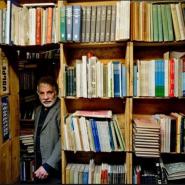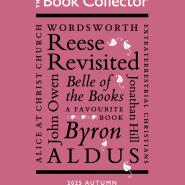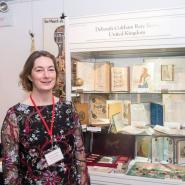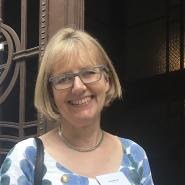ILAB: A Timeline
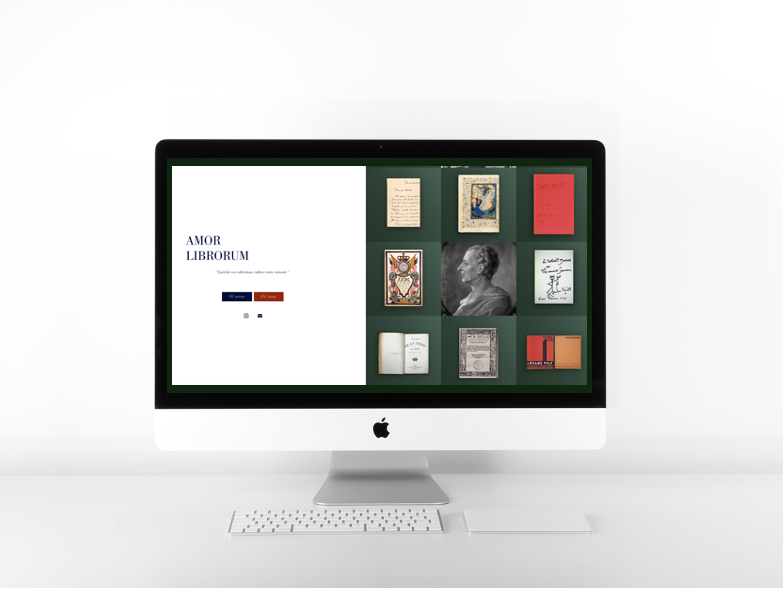
" Enrichir vos collections, cultiver votre curiosité " French booksellers association launches new websites
"Enrich your collections, cultivate your curiosity” has been the motto of recent virtual book fairs, hosted by the French antiquarian booksellers association.
The pandemic brought much upheaval to the rare book trade worldwide and amongst other international fairs, the Paris Salon du Livre in April 2020 was cancelled. However, the board of SLAM reacted immediately and launched already in those early days in April 2020 a digital version of the Salon. An idea was born!
Virtual book fairs were developed in the course of 2020 and even a physical fair could be held at the Grand Palais in September 2020 under strictest hygienic measures.
The 2021 edition of the Salon du Livre Rare & des Experts en Objets d'art is now scheduled to take place in September 2021 at a new venue. This change of location is not linked to the pandemic but renovations in the Grand Palais which had been planned by the City of Paris for several years pre-COVID.
SLAM has found an excellent alternative, the Grand Palais Éphémère, an exceptional temporary conference venue, purpose-built on the Champ de Mars just below the Eiffel Tower. All information about the fairs and the association can be found on the Salon website, one of the sites which went live only a few days ago: https://salondulivrerare.com/
A second site: www.amorlibrorum.fr, adopting the motto of the International League of Antiquarian Booksellers (ILAB), leads to the virtual rare book fairs organised by SLAM of which one event starts today: The monthly "E-Rendez-Vous”. Every 3rd of the month, this fair allows dealers to display 3 books for 3 days. Speed-dating for bibliophiles!
This new concept was launched by SLAM in February 2021. The fifth session starts today, with a growing success. Nearly 180 booksellers have opened an account since February and take turns each month, with an average of 90 exhibitors present. More than a third of the exhibitors are international booksellers from beyond the French borders. The bilingual site receives nearly 40% foreign visitors!
"It is a real satisfaction to be able to keep this contact, every month, not only with the visitors from France and the whole world, but also with all the colleagues. All of them have made great efforts to adapt to these new methods, and I would like to thank them and congratulate them. And they are rewarded: the percentage of books sold improves fair after fair, and since February and with the two e-salons of December and May, more than 500 books have been sold. 'Amor Librorum' is not a vain maxim but a link that survives, even if it is by internet!", says Hervé Valentin, President of SLAM.
For more information about the SLAM, the Syndicat National de la Librairie Ancienne et Moderne, please click HERE or contact the SLAM Office if you wish to exhibit at any of the upcoming events or have questions about buying at a virtual fair.
Enrichez vos collections! Cultivez votre curiosité!
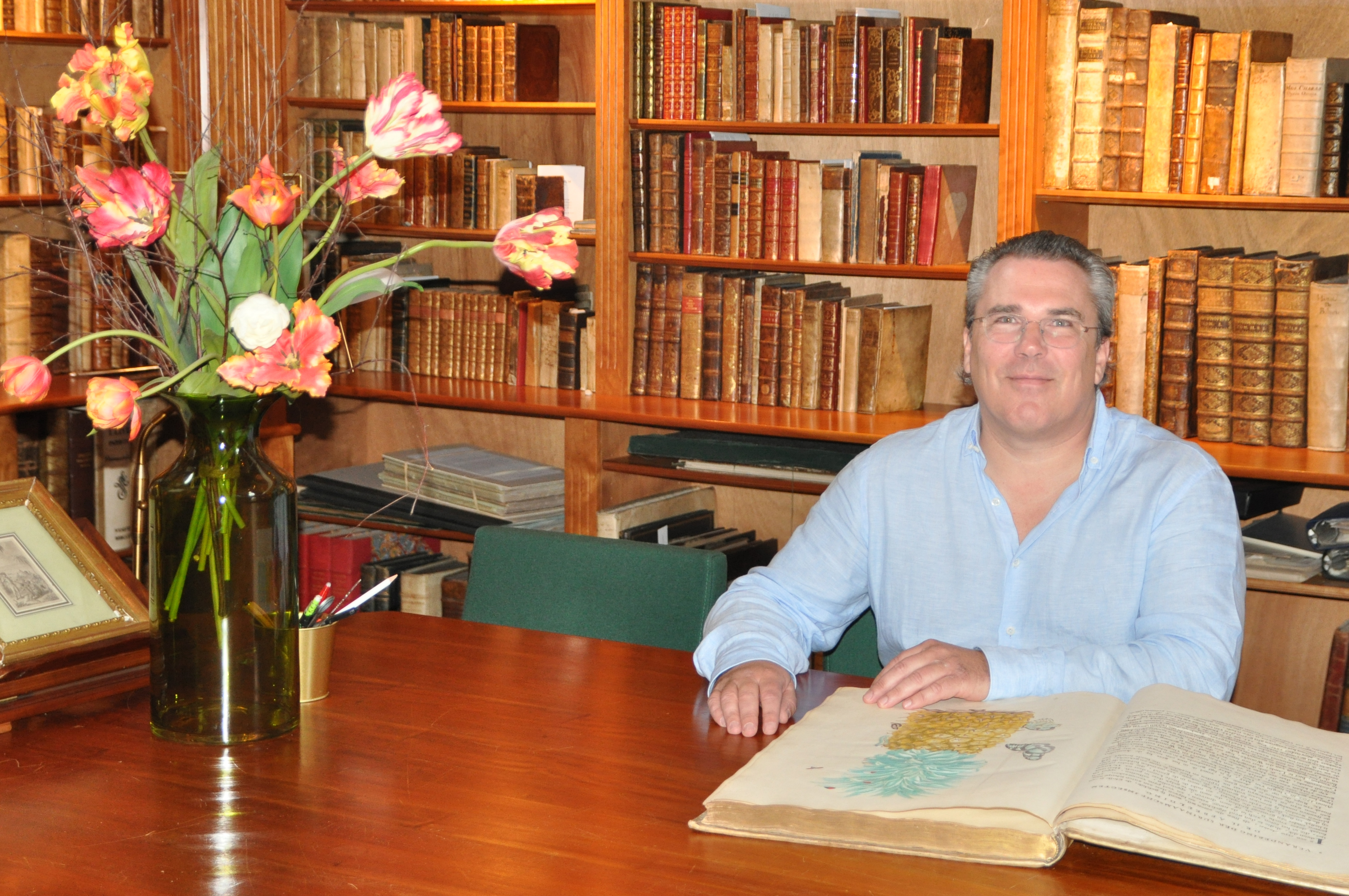
"... free as a bird, meeting new people and different books all the time": An Interview with Laurens Hesselink
Laurens, congratulations on your recent election as president of the Dutch Antiquarian Booksellers Association, NVvA! First of all, could you tell us about your background, how you entered the world of rare books and describe your business?
I grew up with a bookseller father, and as a young kid I never paid much attention to his business, as any kid would do to his father's works, I suppose. School wasn't for me, so at the age of 17 I went to Australia and became a jackaroo, as they call it, and spent 2 years on a cattle station with 42,000 head of cattle, horses, bicycles and helicopters, almost half the size of the Netherlands. I liked it in Australia and after my two year work visa I went back to the Netherlands, got a student visa and went to Longreach Pastoral College and ended up as a certified station manager. My father's and my good friend Derek McDonnell from Hordern House got me the job and told me that I had received the best training to become a rare bookseller because I learnt how to bounder my fences and crush a snake!
After returning from Australia I did all kinds of jobs and ended up at the head office of Bruna, a company that owns a lot of modern bookshops around the country, where I got involved in the newest hottest thing, e-commerce, and we set up the first e-commerce shop in the Netherlands selling books. After a couple of years I did not like it any longer and in 2000 I sent my father a job application via email and to everyone's surprise he hired me. In 2008 I took over the family business and from there we acquired Asher Rare Books in 2010 and here we are, still holding up the family fort and buying and selling books all over the world, which for me is a very exciting thing to do, free as a bird, meeting new people and different books all the time.
You are busy organising the next ILAB Congress, which will take place in Amsterdam from 14 to 17 October 2024, as well as a number of other initiatives for the association. Given the demands and responsibilities of running an association, what motivates and inspires you to dedicate your time to the wider bookselling community?
Organising the ILAB Congress is a very exciting event. It is not an easy task, as the bar has been set high by the organisers of the Oxford Congress, so we have to work hard to achieve exciting visits, good food and beautiful venues for the booksellers from all over the world. What we are trying to achieve as the Dutch Antiquarian Booksellers Association is to bring some excitement back into the world of rare books. We just had a very nice Amsterdam Antiquarian Book Fair and our book fair team, really did an amazing job by taking us to a new venue, had live music, tours and we handed out a Young Collectors prize, a 1000 euro cheque that had to be spent at the fair. We also like to reach out to universities where they teach book studies or Boekwetenschappen in Dutch!
Why should ILAB booksellers attend the congress in Amsterdam? What is on offer?
Why, why is not the why, after the congress, if you haven't been to the Amsterdam Congress 2024, you will be the one asked why, why, why you haven't been there, YOU have missed out!
Who wouldn't want to spend a week in Amsterdam, being treated like a VIP by all the institutes that open their doors to us, ILAB members from all over the world. To see the treasures that are normally kept behind closed doors, in safes, in vaults, and hardly ever see the light of day. This is why you come to Amsterdam, to be one of the lucky few who have been allowed to see these special items, and on top of that, Amsterdam is the city of fun, there is something to be found in Amsterdam for everyone's taste, preference or hobby. We will all be taken around Amsterdam by canal boat, lunch at the Rijksmuseum, dinner at the Scheepvaart Musum (Maritime Museum), too much to mention and all I can say is SIGN UP for this event. Meet your colleagues from all over the world and have a great time!
And last but not least, if you are a bookseller and want to mix pleasure with business! Then join us at the Amsterdam Book Fair, which will take place immediately after the congress in the Passenger Terminal Amsterdam.
You have recently launched a young collectors' prize, a wonderful project in which you work not only with collectors but also with libraries. Could you tell us a little more about some of your ideas for encouraging the next generation of booksellers and collectors?
Yes, as I said, it was an excellent event. In cooperation with the librarian of the Rijksmuseum and the president of the Friends of the Museum of the Book. We will organise it again next year. We have learnt from our first experience and what we also want to do is to keep this group of young collectors together and have an event with them every three months, visiting a library or a bookseller or a museum.
You exhibit at many international fairs and work across borders; how would you say the trade has evolved in recent years, especially since the pandemic? Where do you see opportunities and challenges?
I think life will continue as before the pandemic, the human brain works in mysterious ways. For me, the pandemic seems to have been a long time ago, I don't think about it and we carry on as before the pandemic. I say this very lightly, but we have to remember that many of our ILAB dealers were affected by the pandemic and some of our members even lost family members.
Having said that, I think we just have to carry on doing what you do best and keep looking for those books and customers and enjoy life!
Laurens, thank you very much for your support and we look forward to meeting you and your colleagues from the NVvA in Amsterdam in October!
To contact Forum Rare Books and Laurens Hesselink, go HERE
Sign up for the 45th ILAB Congress HERE - not to be missed!
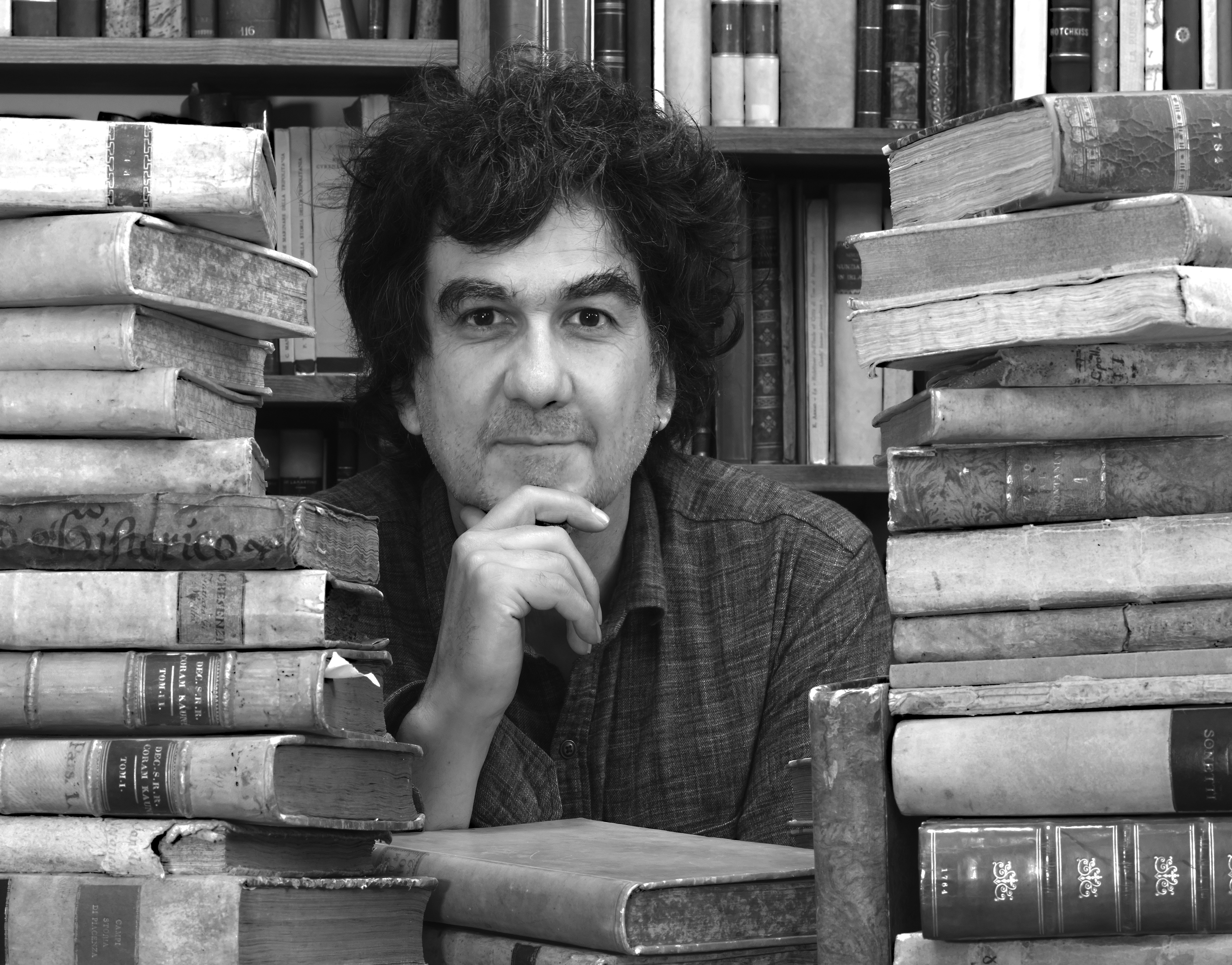
"...bookselling is not a job, it’s a way to enjoy your life"
"... bookselling is not a job, it’s a way to enjoy your life"
When people ask me to explain my work, I tell them that bookselling is not a job, it’s a way to enjoy your life. The aim is not simply to earn money, but to live by and with books. The antiquarian business should probably be described as a vocation - how else could you explain the willingness to work twelve hours a day, seven days a week? Actually, I don’t use the word ‘business’, as I believe that ‘activity’ is a better way to describe bookselling.
My own activity began quite by chance in 1987. A girlfriend at the time sold jewellery in local antique markets. On one occasion when I was helping her in Navigli antique market in Milan, a couple came along in the afternoon and offered us a couple of books of which they wanted to dispose. I hesitated because I didn’t know anything about the books, but then I decided to give it a go. We had to scramble around to find the money but, within a few seconds of putting the books on the stand, they were sold. It was particularly surprising as everyone knows that the real business at markets is done in the early morning. In fact the buyer told us that he never expected to find such books for sale at four in the afternoon. I can’t remember what they were, but at that moment I knew that I would become a bookseller.
We started in a casual way, moving from market trading in Milan to an office in Riva del Garda, on the site of the printing office of Jacob Marcaria, a Jewish physician who received a licence from the Bishop of Trent, to print Hebrew books in the late 1550s. After several years of issuing catalogues of old and rare books on literature, bibliography, history, travel, mountaineering and local Italian history, it became obvious that they were no longer useful for the business, and so we decided to open a shop in the historic centre of the town.
The shop is called Studio Bibliografico Benacense after the Latin word for anything relating to Lake Garda. A tourist resort is the perfect place to have a bookshop. There are a lot of people around, and they are usually in a relaxed mood with time on their hands. Of course the overheads of running a shop in a place like Riva del Garda are enormous. Four of us work in the bookshop, including my elder daughter. We’re open every day, and in the summer from eight in the morning until eleven at night. It’s very hard work but I couldn’t go back to having an office, as meeting the customers is very much part of my idea of bookselling.
I love the atmosphere in the shop during the evening. People come in after dinner, and they’re in a good mood. I put on some music and we often have interesting conversations. They may never have entered an antiquarian bookshop before and have no idea what’s going on, but it gives me the chance to engage their curiosity. I believe that running a bookshop is the best way to demonstrate the fascination of our world. Some visitors walk around for ten minutes and then ask what we’re selling. They clearly can’t imagine that you can earn a living from old books. Other visitors come in and assume the shop is some kind of library. And then there are the people who come into the shop, don’t buy or ask anything, speak very quietly, behave as if they’re in a church, and thank us when they leave. You wouldn’t behave like that in any other type of shop, and I see it as an acknowledgement that there’s something unique about what we do.
As a trade, we tend to assume that the general public understands our world, but it doesn’t. We need to get into their minds, and find ways of holding their interest. The fact that a book is very old may fascinate some people, but alienate others who find it too remote from their daily lives. An appreciation of the achievements of the past is definitely lacking from present-day culture with its emphasis on the future. James Bond is undoubtedly of more interest to young people today than Ludovico Ariosto. It’s important to have a mixture of stock so that everybody has the opportunity to buy something. At the same time I believe that we should try to introduce young people to the fascination of old books.
Although there are plenty of young antiquarian booksellers, I’m not aware of many young collectors in Italy. People tend to live in smaller houses, and don’t have the space for books. Twenty years ago you bought a book because you wanted to have it. Today I watch people hesitate as they ask themselves if they have room for it or the time to read it. When I started bookselling, my customers had a couple of hours each day to dedicate to interests outside their family or work, and reading would be one of them. Nowadays they still have the time, but most of it is consumed by social media. First there was the radio, then television and computers, and now Facebook and Instagram are competing for our time and attention.
Many national associations work hard to attract young people to visit book fairs, and organise guided tours for them. It’s an effective way to create interest in the antiquarian book world, as a well-organised visit is likely to stay in their memory. At the Rare Book and Graphic Arts Fair in Paris in 2024, my colleagues and I conducted tours of the fair for students on the Rare Book and Digital Humanities degree course at the Université de Franche-Comté in Besançon. All the exhibitors were so proud to show their books to the students - and not only the valuable items. There is so much to learn from and enjoy in oddities and unusual material.
Incidentally it was wonderful to find the association of bouquinistes at the fair. In 2023 the City of Paris had threatened to remove their stalls during the Summer Olympic Games in 2024. The President of the French association of antiquarian booksellers approached ILAB for support, and the bouquinistes won their battle. When I visited their booth, I was given a present for my ILAB colleagues for signing their petition. They considered ILAB’s support to have been decisive in their victory.
When I was on the committee of the Associazione Librai Antiquari d'Italia (ALAI), of which I became President in 2018, we worked hard to encourage and support younger Italian booksellers. It’s important to recognise that development is organic. You have to learn step by step. It’s a mistake to start your business with a handful of important and expensive books. We all know examples of booksellers who started on a high, and disappeared after a few years. You should work your way up slowly, and be aware that money is not the most important factor. I can always tell if a person has what it takes to devote themselves to this work. When I show them a book and their eyes light up, I recognise immediately that they are moved by its beauty. If they ask my advice, I always start by showing them how to pack a book. Of course it’s important to know if the book should have three folding plates and an errata leaf, but you also need to be able to pack it properly.
Nowadays it’s very difficult to start from zero as an antiquarian bookseller, but there are other opportunities for working with old books. You can join an established business, or become a rare book librarian, or enter the world of informatics, as I discovered from the students in Besançon. The Master’s degree not only aims to teach students every aspect of the physical rare book, but it also provides them with computer skills for the digitisation projects currently under way in many cultural institutions.
In the digital age, bookselling is an activity in which the physical sense of touch is still important. I need to hold a book in my hands to appreciate the details that make it right for me. You never know what will catch a customer’s eye as they browse the shelves; it could be the lettering on the spine or another small detail that sparks their curiosity. When you sell a book on the internet, you are usually restricted to illustrating your catalogue description with three images. The first two images are devoted to the binding and the title-page, which only leaves one chance to select and feature the detail that might in fact sell the book.
My fight with Amazon around five years ago was portrayed by the media in terms of David and Goliath. There were in fact several other booksellers who joined in the fight. We were objecting to the sudden exclusion of two European countries from selling their books on ABE, the online platform bought by Amazon in 2008. When Amazon refused our request for an explanation, we went ‘on strike’ by asking colleagues to remove their stock from ABE. Millions of books disappeared, and we calculated that ABE’s income was halved. The response was immediate, and the two countries were reinstated, although no explanation was given.
In 2022 I was elected President of ILAB. It gave me an enormous insight into the international trade, and the different practices and concerns of its members. I would say that there is an enormous difference between the Anglo-American and the European way of doing business. Booksellers in the English-speaking world have important relationships with university libraries and institutional buyers. This connection hardly exists in France and Spain, and is non-existent in Italy. It was so refreshing to attend the 2022 ILAB Congress in Oxford, where we visited private and university collections and were greeted by curators who thanked us for what we were doing!
Since the disastrous thefts from the Biblioteca degli Girolamini in Naples were uncovered in 2013, everything has changed for antiquarian booksellers in Italy. The authorities tend to regard us as thieves. I believe that my election as President of ILAB was very important for my Italian colleagues, and I worked hard to show the real face of the Italian book trade. ALAI is an incredible national association with the highest standards, but the Italian government responded to the Girolamini affair by making our working lives very difficult. For example, an export licence for any book older than 50 years is required, regardless of its commercial value.
The role of ILAB is becoming increasingly important to distinguish its members from the jungle of the market place. We must take care of the vision of the founding members to uphold and improve professional standards in the trade and promote honourable conduct in business. The Committee is unpaid and works extremely hard, coping with different time zones, on behalf of its members. Since 2022, we participated with the art market in UNESCO consultations on revising the International Code of Ethics for Dealers in Cultural Property. While we support its core principles, there is concern that the proposed revisions might complicate legitimate trade in antiquarian books. Much of UNESCO’S concern is focused on the trade in antiquities, but in the summer of 2024, they invited representatives from ILAB to a meeting in Paris, where we were able to explain the provenance issues affecting books. As they were designed to be circulated, it can be very difficult to establish a complete record of ownership.
When I visit antiquarian bookshops in countries that don’t have a national association, I always see if something can be done to develop a working relationship. In China, I discovered that anything older than twenty years is considered a rare book. It might have the title-page missing, but it’s still valued as a desirable book. A lot of booksellers were hoping that China might gradually follow the example of Japan, which was such a success story for selling Western rare books. The difference is that Japan has a number of universities that were keen to study the roots of European culture, and to acquire the primary sources. I believe that China, with its ancient culture, is more self-contained and inward-looking.
As I have a daughter who would like to stay in the antiquarian book trade, I’m obliged to take an optimistic view of the future. If you’ve been active for a number of years, you will probably do all right, but it has become more difficult for anyone starting now. The new generation tends to focus on having a small number of books, not least because of the cost of storage space. There was a time when I had 1,500 books, and they were all in my shop. Now I have more than 100,000 books - from incunabula to paperbacks - and I keep on buying them. If I hadn’t become a bookseller, I would probably be a collector, but I’ve always known that my life had to be full of books.
This interview was done in January 2025 and is reposted here with the permission of the publisher.
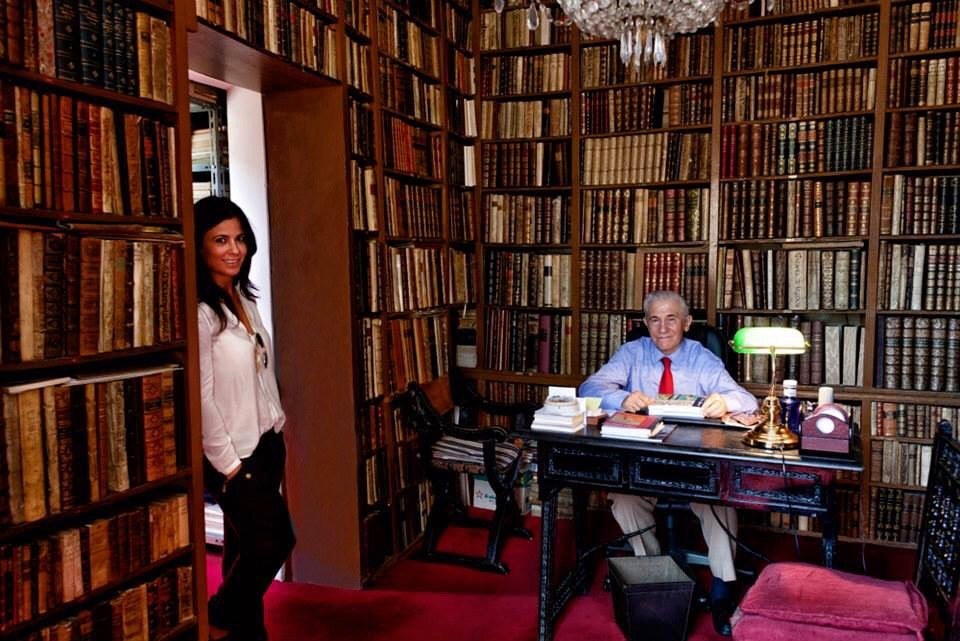
"...there’s more to Spain than sun and fun."
"...there's more to Spain than sun and fun"
Times have changed since my grandfather founded Librería Bardón in Madrid in 1947. Nowadays, our beautiful shop in Plaza de San Martín next to the Monasterio de las Descalzas Reales is mentioned in travel guides and appears in ‘selfies’ of tourists from around the world. In my father’s time, he wouldn’t open the door to anyone wearing short trousers. My father ran the business for more than 60 years, and I first began helping in the shop when I was a teenager. I didn’t realise that it would be my future, but I enjoyed spending time with my father to whom I was very close. As the father of seven children, I’m sure the peace and quiet of the bookshop was a refuge for him. He certainly spent most of his time there, and I would join him on Saturday mornings.
At that stage my ambition was to go to law school, and to become a prosecutor. My family would make fun of me because I was always standing up for the underdog. As things turned out, I should probably have taken a degree in the history of art or literature, but university is never a waste of time. Studying law taught me to be focused, disciplined and methodical. We had to memorise an enormous amount of material, which is always a good exercise. I can still recite the Constitución Española. In fact I’m rather obsessed with national constitutions, and I have a collection on the subject.
While I was a student in Madrid, I found an internship with a law firm in the UK as I wanted to improve my English. It was in the north of England and could hardly have been more different from Spain, but I enjoyed the experience of working with a criminal barrister. I was only twenty years old, and he would let me sit in with him during interviews with his clients. I remember thinking that it was exciting and so cool! Eventually I moved back to Spain and finished my studies, but it wasn’t long before I was in London looking for work in the legal profession.
As my law degree wasn’t recognised for the purposes of qualifying as a barrister, I was faced with retraining for the Bar of England and Wales, or returning home to work for a Spanish law firm. Meanwhile, a friend from Barcelona, who worked as an administrator in Christie’s book department, asked me to send in my CV. A few days later, Tom Lamb called and offered me an internship. I had heard of the great reputation of the auction house, and I couldn’t believe my luck to be working with Meg Ford, Adam Langlands, the Earl of St Andrews, and of course Tom, firstly in King Street and then in South Kensington. Although my father never tried to influence me, I knew he wasn’t very happy that I was working for Christie’s. He was a bookseller of his time, and regarded auction houses as competition.
Everything was very British about Christie’s. We had to dress in a certain way, and there was a formality and elegance that greatly impressed - and scared me. I was also scared by how much I had to learn in a short space of time. I arrived in 1996 at the same time as the Feltrinelli library, which was sold by Christie’s between 1997 and 2001. Suddenly, I found myself collating incredible but difficult material, but my wonderful colleagues were always supportive, and Meg was an inspiration. Incidentally, anything Spanish tended to come my way, as if I had some kind of innate knowledge!
When my contract came to an end, I was offered the opportunity to stay at Christie’s. It was a difficult decision, but in the end I returned to Madrid and entered the legal profession. After eighteen months, I realised that I wasn’t enjoying my work. My father was keen for me to join him at Librería Bardón, but I wanted my independence, which is something that I had enjoyed since I first went to England. I haven’t followed the traditional Spanish model in many aspects of my life, and I didn’t want to become my father’s assistant. Let’s say that his attitude to women was rather old-fashioned, despite the fact that God gave him six daughters, of whom three are in the trade.
However, he always respected my independent spirit, and I was never obliged to do the conventional thing. For a while I ran my own little book business, and invoiced my father for the work that I did for him. I’ve never forgotten the first time that I sold something rather well, and my father said, ‘You’re going to be a very good bookseller’. I was so happy to hear those words, but I must say that it took a long time to be recognised for myself, and not simply as the daughter of Don Luis. My great friend Camille Sourget had the same experience when she followed in the footsteps of her father, Patrick.
I’m full of admiration for Pom Harrington and what he has achieved for his family business. My father first met Pom at a Christie’s sale of travel books in New York. Pom was standing at the back of the room, buying all the important works of Spanish exploration - the very books for which my father had crossed the Atlantic. He was becoming quite annoyed, and turned round to look at Pom. ‘Who is that guy?’ he said to me, ‘Why’s he buying Spanish books, and why’s he so young?’ When I explained that he was Peter Harrington’s son, my father declared that Pom was the only example known to him of someone improving an antiquarian business into which they were born. I wasn’t quite sure how to take that remark.
In 2008, my father formally retired, and I took over the family business with my sister Belén. She had studied bibliography at university, and had been working for my father while I was in London. I won’t pretend it’s easy working with family, but Belén and I were very close when we were young, and I believe that we complement each other. She is relaxed and quiet, and I’m more volatile and passionate. Belén has a greater understanding and knowledge of the Spanish market but, as a mother of three children, she prefers not to travel for work, and so I’m more involved in our international business.
When people ask me what I do, there’s always a gasp of amazement that one can actually make a living selling old books. Their second question is always, ‘What’s your most expensive book?’ People are happy to spend a lot of money on property and crazy art, but they can’t understand why the first edition of The Origin of Species is expensive. It makes no difference when I try to explain that it’s a question of value rather than expenditure. Darwin’s book changed the world, which is more than can be said for their new house.
My father only dealt in antiquarian books, but I’m very interested in modern literature and the Spanish writers and poets of the Generation of ’98 and ’27. Their works are increasingly popular amongst young book collectors, who are emerging with strength. It’s an optimistic sign, and gives me hope for the future of our occupation. Another change since my father’s time is the number of young and talented women in the business. He only had one female colleague, who was based in the north of Spain, and is no longer with us. I can’t remember any other Spanish female booksellers of his generation.
Belén and I have had a tough time since our father’s death in 2019. First of all there was the pandemic, and in 2021 we had a disastrous flood in the shop, which damaged the structure of the building. Four years later we’re still battling with the Kafkaesque bureaucracy for the permits required before any work can be done on historic buildings in the centre of Madrid. Meanwhile the shop is temporarily closed, and almost entirely filled with scaffolding. We had to move 80% of the stock out of the shop, and now one of the biggest challenges is finding anything. Surveyors come and go, but no work has actually been done. It might have been easier to find other premises but, for sentimental reasons, we decided to stay on and fight. There were times when I wanted to quit, but this is my life and it’s all that I want to do.
Now that I’m working from home, book fairs have become my shop window. They have always been important to me, and I remember persuading my father that we needed to participate in foreign fairs. My grandfather had joined the ABA in 1956, but my father was never very active on the international scene. It was partly because he didn’t speak English, but also because Spain was an inward-looking country in those days, and it was difficult to send money abroad. The Asociación Ibérica de Librerías Anticuarias, of which I’m currently the President, wasn’t founded until 1990. My father didn’t realise the importance of maintaining an international presence, whereas I enjoy flying the flag for Spanish culture. In fact I feel a great sense of pride when I’m the only Spaniard exhibiting at a foreign book fair.
We have such a rich artistic and cultural heritage and so many world-class institutions, and yet you wouldn’t think so if you asked the man in the street. I blame the education system which, in my opinion, seems determined to neglect our heritage and values. The Biblioteca Nacional de España has an astonishing and wide-ranging collection, but perhaps one in a thousand Spaniards are aware of it. Nowadays children experience everything on a screen. I’m still excited by the book as a physical object, and the romance of holding something that was once in the hands of an early explorer, a Spanish king or Federico García Lorca. I don’t understand why my country is so neglectful of its history - there’s more to Spain than sun and fun.
This interview was done in March 2025 and is reposted here with the permission of the publisher.
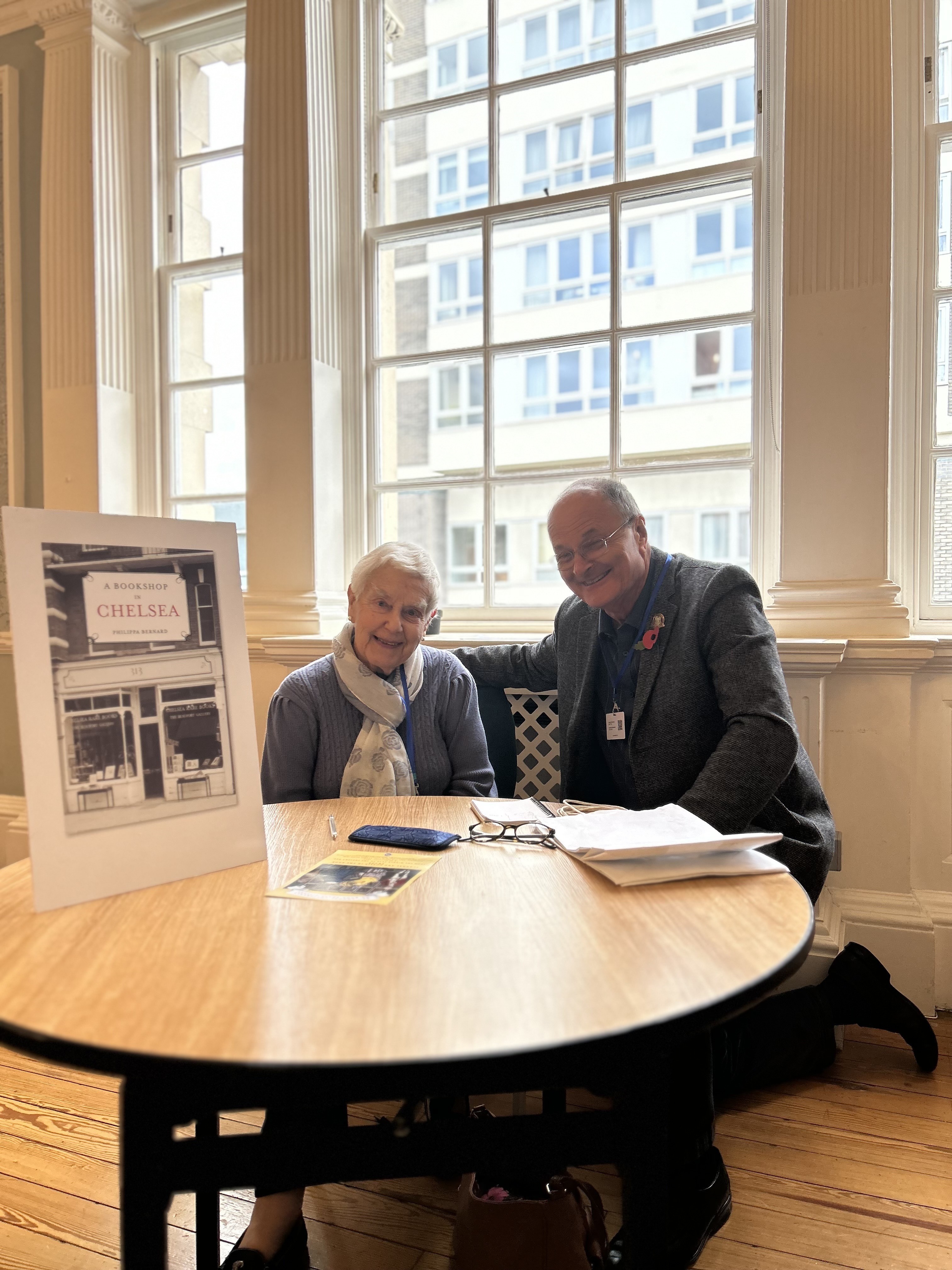
"A Bookshop in Chelsea" - Reviewed by Adrian Harrington
What a treat! A real stroll down Memory Lane, paralleling my time on the King’s Road in Chelsea. Philippa’s engaging account begins in 1971, the same year that I joined my brother, Peter, in the Chelsea Antique Market at 253 King’s Road. By the start of the new millennium, Chelsea Rare Books had departed the world-famous thoroughfare. We had also gone, three years previously. The rent that they were paying in 1971 of £700 pa was a distant dream. The new rents on the King’s Road made many shops unviable.
Bernard and Philippa had bought the shop, with no experience of the book trade, from Robin Greer, renowned for his specialist subject, children’s illustrators. Their first sale was a book from the famous racks outside for a 50p coin. Six months earlier and it would have been a ten bob note. Cheques were universally accepted and seldom bounced. There were no mobile phones or computers. Reference books, for most dealers, consisted of a well-thumbed run of Book Auction Records! We relied on instinct and the helpful guidance of the trade and our customers. The world seemed to be very hungry for all areas of antique and fine art collecting, and books were no exception. Dealers from Europe and North America beat a path to London and especially Chelsea. It was this lively environment that allowed our intrepid couple to learn the ropes very quickly. Bernard’s avuncular style endeared him to everyone and Phillipa’s grounded good sense and friendliness quickly made Chelsea Rare Books the ‘go to’ place.
I always enjoyed popping in there, seeking books that I hoped to profit from and a friendly conversation. Philippa speaks warmly of her various assistants over the years. They were generally young women and all of them remained friends, long after they had moved on.
“Amor Librorum Nos Unit” - the love of books unites us, the adopted motto of the book trade, seemed very much to apply here. The bonds that are formed working in books stay strong and Philippa’s various accounts of all who came into her shop, being captivated, then captured, and finally forming lifelong friendships, repeatedly demonstrates this. Even a book thief gets a kind word. Once caught, Leo gave him permission to ‘steal’ from the racks outside. Value not to exceed £1, number of books per week not to exceed one. It became a routine with our thief happily waving his latest acquisition to Leo to demonstrate his adhesion to the deal!
The various accounts of the great, the good and the not so good echoed our own experience. Many rock stars headed for the King’s Road as did film stars, the aristocracy, several politicians and famous people in general. Many were or became avid book collectors. Princess Margaret was a visitor who also opened the ABA Book fair one year. Philippa’s accounts of such visitors are a labyrinth of connected people, all demonstrating how lucky we were to be at the epicentre that was Chelsea.
Chelsea Rare Books was a hub where bibliophiles gathered to meet and discuss their various artistic and book passions.
Philippa’s book buying in Chelsea is the one area where my own experience was entirely different. Chelsea Rare Books were always being offered books. Harrington Bothers, as Peter and I were then, never seemed to get that opportunity. It’s one of the great advantages of having a shop – it inspires trust. I have found this at my own premises in Tunbridge Wells. In Chelsea we were in an antiques market - the World’s first antiques market in fact - a situation I suspect that meant we were somewhat outside the mainstream of the London book trade. In fact, one past president of the ABA gave “they trade from a market stall” as a good reason to deny us membership of the ABA.
For Philippa and Bernard, the offers of books came to them in abundance, including a collection of books from Darwin’s library, several of them inscribed! Happy days!
The Beaufort Gallery was the name they gave to their prints and maps department that they opened in the basement of the shop. In those days the breaking up of books for their plates was prolific and very controversial, as well as being against ABA rules, as it is now. Dealers from all over Europe and America were buying travel and Natural History books for the value their plates would have once separated from the binding. I know of one London bookseller who evicted an Italian dealer from his shop. The dealer had started to dismantle the books he had purchased whilst still on the premises, saying it would make transporting the plates easier! Philippa tells us that their source of engravings was from incomplete and broken books. The strange thing is that now that the craze has passed, many of the remaining intact books have little to no value.
Philippa’s amazing recall of the various book runners, thieves, awkward customers, great friendships formed and extraordinary collectors paints a wonderful picture of the times. As she has moved from selling books to writing them, I am grateful that she took the time to write this one and I heartily recommend it.
Image above: Philippa Bernard and Adrian Harrington at the Chelsea Rare Book Fair, November 2023
This review was first published in the ABA Newsletter, Winter 2024 edition - the full newsletter can be downloaded HERE
The book can be purchased at all major bookshops, such as Waterstones or similar.

"A collection can grow and change with the times and, above all, always be the occasion and starting point for new interpretations."
Elisabeth Wittkowski (born 1998) wins Young Collectors' Award 2022 for Elton John Collection: "Self-Representation and Reception 1970-72".
On 21 February 2022, during this year's Stuttgart Rare Book Fair, Ms Elisabeth Wittkowski will receive the first prize of the 2022 Young Collector's Award with an endowment of EUR1000 by the German Antiquarian Booksellers' Association.
Link to register for the online prize giving ceremony, please GO HERE
The interest in developing and curating a collection, but also the enjoyment of the objects and collection areas, transcends generations. On the occasion of the 2022 Stuttgart Rare Book Fair, the German Antiquarian Booksellers' Association called for applications for a second time, since the inaugural award in 2020. The applicants, no older than 35, were asked to give an overview of their collection but also to describe their motives.
The jury chose Elisabeth Wittkowski's creative and convincing work on "Self-Representation and Reception" of Elton John in the early 1970s from among the diverse entries. On the one hand, the artist fascinates in his constant development, but the collection often shows another person behind the generally visible stage persona. Authentic representation versus media distortions of reality but also the multimedia nature of Elton John's reception reflect both the collecting theme and everyday cultural processes of the early 1970s.
"And they do collect! This, or similar, is how one might paraphrase a well-known quote. The applications for the 2022 Young Collector's Award, which is being offered for the second time, have shown that the hunt for books, as objects of desire, is unbroken and age-independent. Only the search, the possibilities of acquisition and the contents of the collectibles differ and often have a stronger connection to the present. It is always a pleasure to be able to experience and feel the enthusiasm of young people for printed matter in any form." Sibylle Wieduwilt, Chairwoman of the German Antiquarian Booksellers' Association and member of the jury.
All images below were supplied by E. Wittkowski.
The Stuttgart Rare Book Fair runs 18 - 22 February 2022
Link to virtual fair: VIRTUAL STUTTGART RARE BOOK FAIR 2022
As a result of the COVID pandemic, the German Antiquarian Booksellers' Association (Verband Deutscher Antiquare) developed a virtual fair platform in 2021, which in 2022 will once again give rare booksellers from Germany and abroad the opportunity to present their stock while in-person fairs and events are not yet allowed in Germany.
In 2022, the German Antiquarian Booksellers' Association welcomes 73 antiquarian bookshops and galleries from Germany, Austria and Switzerland, the Netherlands, France, England and the US.
All exhibitors are listed here.
Stuttgart Fair Catalogue
The Stuttgart fair catalogue is now published and can be ordered by email from the Association's office.
An electronic version is available FOR DOWNLOAD HERE
Virtual Stuttgart Rare Book Fair 2022 opens 18 February at 12 noon German time
The virtual Stuttgart Rare Book Fair 2022 will go live on 18 February 2022 at 12 noon German time and closes on 22 February 2022 at midnight.
73 German and international antiquarian booksellers and galleries will exhibit up to 20 additional objects each. The virtual fair does not handle direct sales; sales are made directly through the dealer.
You can reach the virtual fair via ff. link: VIRTUAL STUTTGART RARE BOOK FAIR 2022
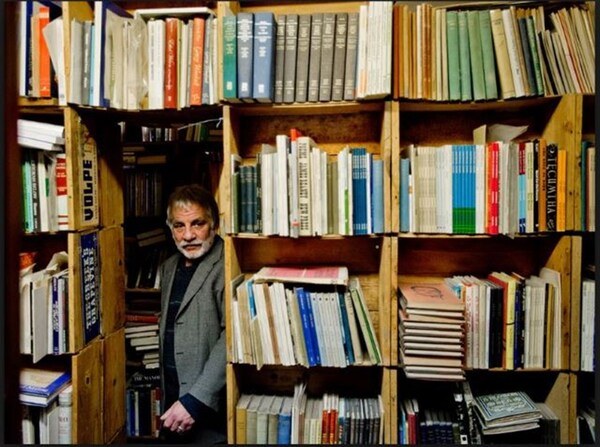
"A kind, diligent and calming influence and a true gentleman": On the passing of Steven Temple
Steven Temple served as President of the Antiquarian Booksellers' Association of Canada from 2000 to 2002, and following that as General Secretary of the International League of Antiquarian Booksellers from 2002 to 2006.
On the note of his passing, some of his former colleagues expressed their condolences.
"Steven was a very nice man and I greatly enjoyed my years with him on the committee. He was devoted to his work as secretary: we once had a meeting as a committee at Bob Fleck’s house/shop. Steven’s luggage had not been delivered with his flight, and his flight was also delayed. He arrived late, by taxi, without anything but the clothes he was wearing, but, as he said, I’ve got work to do!"
Arnoud Gerits, ILAB President of Honour
"I was around while Steven was on committee and subsequently secretary. I also used to visit his shop in Toronto. He was a kind, diligent and calming influence and a true gentleman. He was also good company and will be missed by all who knew him."
Adrian Harrington, ILAB President of Honour
"Steven was at the forefront of that generation of Toronto rare book sellers that came to prominence in the 1970s and 80s. Many Canadian institutional libraries benefited from rare items he was able to acquire and place in their collections. Steve would remember your collecting interests and an occasional email from him would arrive quoting items that you would never think you would see. Always enjoyed chatting with him on a range of topics outside of just books. Sorry to hear of his passing and condolences to his family."
Matt Doyle
"I always enjoyed visiting the shop on Queen West, or stopping at his booth at one of the Toronto Antiquarian Book Fairs. This included chatting with Steven and usually resulted in learning something I did not know about some aspect of Canadian literary rarities. ... May his memory be a blessing to his family and those who knew him."
Bernard Katz (U. of Guelph Library, retired)
An obituary was published in the Toronto Star on 10 September 2023
George "Steven" Temple, a loving husband, father figure, and esteemed bookseller in the world of books, passed away, on September 7, 2023, at the Niagara Health - St. Catharines Site, just days into his seventy-sixth year.
He leaves behind a legacy of love, literature, and a life well-lived. Steven was the beloved husband of Jennifer Temple (née Fraser), and their union brought together not only their hearts but also Jennifer's two sons, Istvan "Dugi" and Sandor Dugalin, whom Steven embraced as his own and guided as a father figure and friend. He shared a special bond with his siblings, Deborah, Gwenda, Janice, Joel Anthony, and Robert Christopher; and his dear friend, Jacob, who Steven referred to as his younger brother. Born to Norman and Marie (née Vogler), Steven Temple cultivated a remarkable bibliographical record.
He was renowned as the President with the Canadian Booksellers Association and Secretary of the International League of Antiquarian Booksellers, and books were not just his profession but his lifelong passion.
From 1974 to 2011, he owned his own storefront on Queen Street West in Toronto, where he shared his love for literature with the world. Steven was a man of many interests and talents. He was an avid long-distance cyclist, a connoisseur of Sudoku, and a gifted tenor saxophonist. His music often lulled Jennifer to sleep with the sweet melodies of "Alice in Wonderland."
His dedication to the literary world extended beyond his business, as he sponsored the Leon Rook Award, leaving an indelible mark on the literary community. In 2011, Steven and Jennifer made the move to Welland, where he continued to embrace life with open arms. Although he possessed a rough exterior, his heart was filled with empathy and compassion for those around him.
Steven thrived on taking risks and relished competition, never willing to settle for a life within the confines of a cubicle.
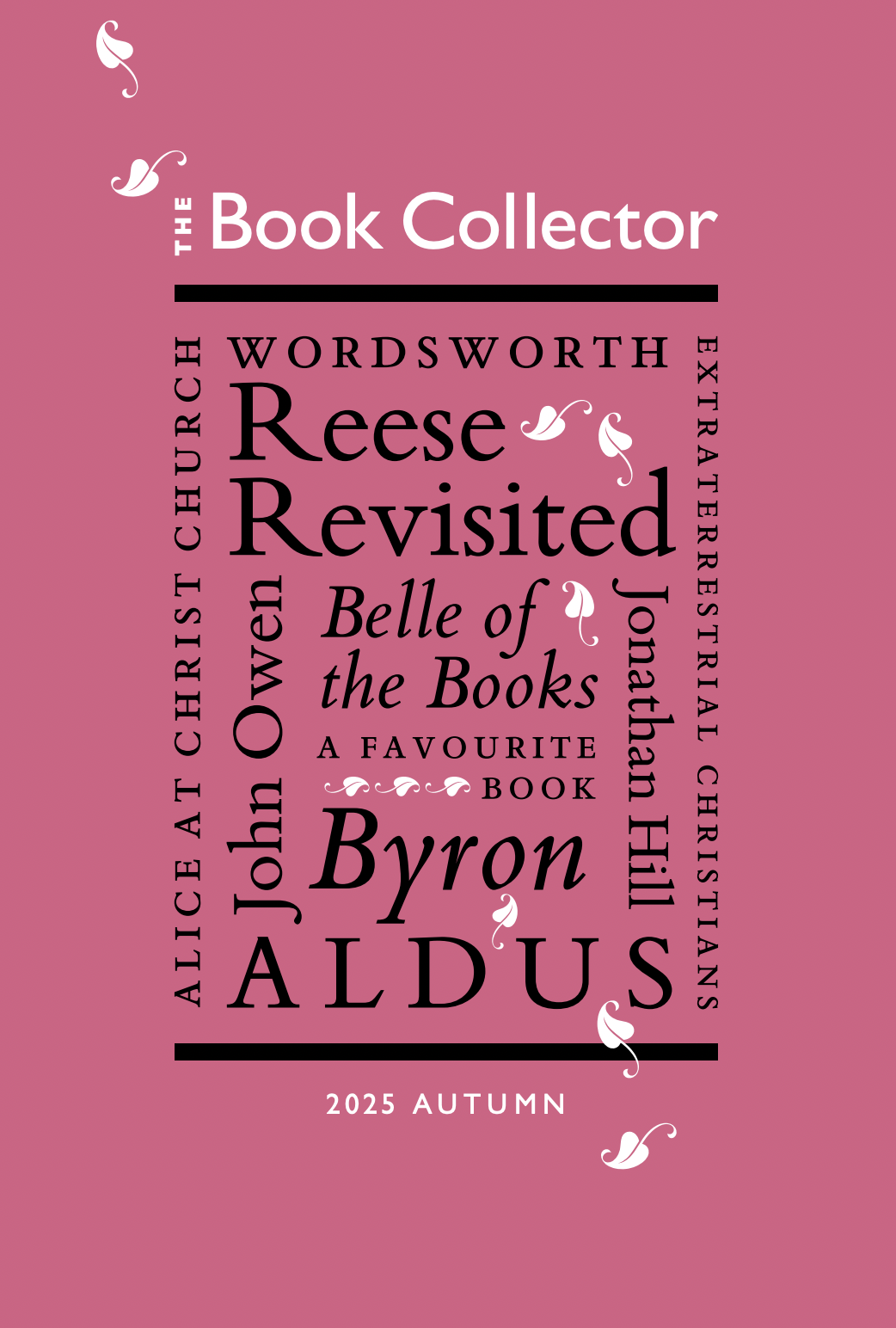
"A large part of the bookseller’s job is seeing something significant in a book which others had missed, ..."
In its recent edition, The Book Collector invited two booksellers, Angus O’Neill and Brian Lake, together with auctioneer Matthew Haley, to revisit a landmark series of essays on the book trade written by the late Bill Reese in 2000.
We are pleased to share Angus O’Neill’s thoughtful contribution, published in the Autumn 2025 issue. In his essay, Angus reflects on how the trade has evolved over the past half-century — from the impact of the internet on rarity and pricing, to evolving tastes, provenance research, and the reappearance of younger collectors. He also considers the challenges and opportunities posed by AI, and reaffirms the enduring value of the bookseller’s eye and expertise.
ANGUS O’NEILL - Proprietor, Omega Bookshop, trading independently since 1984.
When the late, lamented Bill Reese wrote his article ‘The Rare Book Market Today’ in April 2000, the trade in rare books had changed more in the previous twenty-five years than in the five centuries beforehand. This was largely due to the internet, of course: the most immediate change (among others, which I shall mention) was that our received ideas of rarity and availability had gone out of the window in just a few years. A typical art reference book, fought over at £85 in the 1990s, now languishes on the outside shelves at £5; as an undergraduate student in 1982, I sold a rather worn ‘uncorrected proof ’ (really, as we all know, a publisher’s rep’s advance reading copy) of John Fowles’s The French Lieutenant’s Woman (London: Jonathan Cape, 1969) for a gratifying £300 – about five weeks’ student grant, if anyone still remembers such things. I would be delighted to get that price for it now.
Another change is that people buy so much over the internet. Even though books might have seemed a perfect commodity for this, online trading still got off to a shaky start, as many of the kitchen-table booksellers didn’t understand the importance of condition, and thought bibliographical references (if they used them at all) were a kind of tinsel, as opposed to a valuable aid in describing their copy; but the market has settled down, and consumer legislation has removed a few of the pitfalls. There is of course nothing better than seeing a book (and talking to a bookseller face to face), but detailed images have turned out to be quite a good substitute for much of the jargon (‘nf in sl fr d/w’) that we grew up with.
By coincidence, my own experience of the book trade spans exactly fifty years: in 1975, a solitary outcast from boarding school, I enjoyed a holiday job in Ken Swift’s charming, rambling shop in Oxford’s Cowley Road. (This time-honoured way of entering the trade seems to have largely vanished, replaced by internships for the already well-connected, or by nothing at all.) Most of the stock was ordinary secondhand material, although it was in good condition and there was no rubbish. I remember a few highlights: Katherine Mansfield’s The Garden Party, illustrated by Marie Laurencin (London: The Verona Press, ‘1939’ [but 1947]), then a little way into three figures, roughly where it is now after a brief, Japan-inspired foray into four-figure territory in the late eighties (there is an auction record of £3,850 in 1989!); a very nearly perfect Lord of the Rings, sold for either £300 or £350 (a few years later, an immaculate Hobbit struggled to break free from a local auction at £400). But the shop offered a good grounding in decent, literate stock, territory in which I have ploughed a sometimes lonely furrow ever since. Since that time, I’ve worked for a ‘big firm’ (for eighteen months, as a secretary), issued catalogues, done a few fairs, owned a shop in Cecil Court in London, and carried a lot of books for many miles (although travel is more of a luxury than it once was, and the days of covering a long trip’s expenses in the first shop I visited are but a distant memory). I’ve never run an auction, nor employed large numbers of staff and it will be clear that I write from a very British perspective, but I still have time to go out buying, and to research what I find. Those are the aspects of the trade which have always appealed to me the most.
One unexpected development, which started in around 2000, was that my customers began to be born again. Not in any religious sense: but, along with many colleagues, I have noticed that nearly
all my customers today are under twenty-five or over fifty. What happened to the generation between those two? A combination of things, I suppose: the birth of the ‘digital native’ (all those solemn youngsters who so confidently asserted that the book was ‘dead’); the touching conviction that texts would somehow become free and remain incorruptible; or perhaps just lack of space and money. But all that has changed. It could be the equivalent of ‘vinyl syndrome’, in which consumers recognise that high-end audio equipment actually gives better results than a stream of digital signals; it could be the heightened awareness that information can be meddled with, hidden behind a paywall or deleted altogether; or perhaps a new generation has just discovered how beautiful and evocative the printed book can be as a physical object. Possibly the 25–50 age range is just too busy earning a living, but that never stopped bibliophiles before. Anyway, whatever the cause, all these young people are very welcome.
Tastes have changed, too. The days when even the neatest inscription was seen as a blemish are largely over, even in the more obsessive corners of the modern first edition market. I remember encountering resistance when I suggested in around 1990 that the ownership signature of the writer John Brophy did no harm to my first edition of Animal Farm. This sea change is directly down to pioneering books such as David Pearson’s Provenance Research in Book History (revised edition, 2019), but the internet is also indirectly responsible, in that when we seek information on the earlier owners of books, we are no longer confined to ODNB, the Peerage or sheer serendipity. Suddenly an entirely new cast of characters has been summoned up from the shades, and we are better off as a result: although, as usual, a little restraint in interpretation might not come amiss. Not all early owners were especially interesting, and sometimes a plethora of facts may make us (as F. E. Smith may or may not have said) ‘none the wiser, just better informed’. I remember a leading auctioneer offering a recent first edition children’s book (probably a Harry Potter) with the pompous subheading, ‘provenance: contemporary gift inscription, in mauve felt-tip pen, “Suzie with love from Nana”.’ Not much help if we don’t know who Suzie or Nana were, and I struggle to equate this with, say, John Singer Sargent’s copy (complete with Galignani book-ticket) of an early novel by Henry James.
Provenance is exciting but it can have a downside, like most positive discoveries when they fall into the wrong hands. The laudable determination of institutional libraries not to possess anything stolen or looted can sometimes lead to disproportionate concern, as when their buyers insist on a comprehensive paper trail of ownership. It is very rare to find an old book with a complete and unbroken chain of provenance: indeed, were one to acquire a book complete with its 17th-century purchase invoice from the Leipzig book fair, and a collage of noble bookplates from then to the present day, there would be a strong case for considering it part of German cultural heritage and thus blocked from export, even for the most forceful bookseller. Books are multiples, and they were made to travel – Anton Koberger, the publisher of the Nuremberg Liber chronicarum in 1493, had offices all through Europe from Lyon to Buda. But the bookseller’s duty is to persuade rather than to complain, and there are signs that increasingly productive dialogue between libraries and the trade is leading to a more satisfactory approach to this problem. Finally, on this topic, it should be stated unequivocally that the great majority of antiquarian booksellers are implacably opposed to the legal fictions which some jurisdictions apply to the acquisition of clear title, when recognisably stolen books are sold at auction: this is an anomaly which we would love to see abolished. ILAB is working on it, but it will take a while.
Some of the trends which Bill Reese pointed out twenty-five years ago have continued to develop: the rise of the private collector, for instance. The completist has largely given way to the acquirer of high spots. Decent copies of Evelyn Waugh’s Brideshead Revisited (the first trade edition, London: Chapman and Hall, 1945) have gone in twenty-five years from high hundreds to high thousands, while the artificial rarity Basil Seal Rides Again (London: Chapman and Hall, 1963) remains stuck in the low hundreds (£188 for a lucky vendor at a Bloomsbury auction in 2004, £240 at Dominic Winter’s in 2023). Oddly, the true first of Brideshead, one of the fifty in wrappers ‘issued privately for the author’s friends’, has not fared so well: a copy fetched £2,530 in 1994, while another made a disappointing £8,960 thirty years later: perhaps its very scarcity is oV-putting. As any art dealer will tell you, there’s no point in making a market in something you can’t find. I should add that auction records are not the only price data out there, but they are relatively easy to obtain and are useful if interpreted with caution and a little cynicism: the successes are reported more conscientiously than the failures.
Good ordinary books are getting harder to sell, while highlights are ever more sought after. In 2000 and 2010, I inadvertently conducted a controlled experiment on this thesis: asked to clear eighty boxes of randomly packed books from a deceased estate, I found that the heir’s circumstances made it impossible for me to take more than forty on the first visit, and I was pleasantly surprised when a nearly forgotten number popped up on my telephone a decade later. Of the first forty boxes, thirty had to be sold wholesale for very little: the remaining ten were worth £8,000. The second time around, thirty-six boxes bit the dust, while the last four stacked up to £20,000, plus one book which even then seemed to have a way to go, and which I still have: perhaps another £20,000 for that?
The Mittelstand of the trade, the old-fashioned holistic market town shop that could find a home for every worthwhile book, is now a rarity, surviving only when it is in the happy position of owning its own freehold. There are glorious exceptions (G. David in Cambridge, for instance), but only a very few. Most of the valuable business is in the hands of a small number of firms, and there seems a lot less social mobility than there was a couple of generations ago; and, alas, that is not confined to the rare book trade.
Printing and the Mind of Man books (still a key text for the highlight collector) go from strength to strength, buoyed up in some instances by personality cults: the Darwin market, for instance, is perhaps worth a glance, as the high spots appear to have gone up roughly tenfold since 2000. An acceptable-sounding copy of On the Origin of Species (London: John Murray, 1859) fetched £19,550 against an estimate of £7,000–£9,000 at Sotheby’s in 2000, while Forum sold a rough-looking one this year for £98,280, and leaves from the original MS (used by generations of Darwin children as scrap paper) have blossomed from US$96,000 in 1999 (an ‘important leaf ’, estimated at $25,000–$35,000) to £274,000 and £490,000 in 2018. No wonder Cambridge University Library is relieved to have its notebooks back.
What next? Inevitably, the question of artificial intelligence needs to be addressed. To approach this, as an avowed sceptic, I tried to recall the details of a half-remembered remark by Aldous Huxley to the effect that ‘military intelligence bears the same relation to intelligence as military music does to music’, and so, in a vain attempt to check my memory and obtain chapter and verse, I turned to Google. The result was more telling than I expected. The ‘AI overview’, which heads the search results, begins as follows: ‘The connection between Aldous Huxley, military intelligence, and music is multifaceted. Aldous Huxley’s dystopian novel, Brave New World, has been a source of inspiration for musicians, including Iron Maiden, who created the song “Brave New World” based on the book’s themes of societal control and artificial intelligence…’ What a fine, ten-dollar word ‘multifaceted’ is! And how kind of Googleto throw in a disclaimer at the end of this word salad, stating baldly that ‘AI responses may include mistakes’. You don’t say! Lessons have been learned, as they say nowadays.
Seriously, however, a close colleague very nearly fell foul of AI, when a prospective customer asked Google what a book in his stock was worth. The title in question was William Wollaston’s The
religion of nature delineated (London: Samuel Palmer…, 1725). First printed in 1722, the work went through several editions, and one of the 1725 reprints is noteworthy for having been set in type by an argumentative American teenager, the young Benjamin Franklin: therein, of course, lies much of its value. AI completely failed to spot this: it came up with a predictably half-smart summary of online prices and auction records, suggesting a price in the mid-hundreds of dollars, not unreasonable for other editions of the book (which is more interesting than it might sound), but wholly missing the Franklin factor. I am happy to report that another customer came along, one who was willing to engage his brain rather than his keyboard, and the book sold, but it was an awkward moment and AI will only get cleverer, or at least more plausible. Cataloguing and pricing are major elements of a dealer’s skillset, but we will not have a monopoly on them for ever. Two decades ago, I was able to fool a search engine by asking ‘Who wrote Handel’s Water Music?’, but such a trick would be harder now. Nonetheless, a large part of the bookseller’s job is seeing something significant in a book which others had missed, and this seems likely to remain the case for many years to come. That’s how we buy from other dealers!
I write this in a hotel room, overlooking a railway station (shrine to a technological marvel, still working after 200 years) and a newish postmodern office block (five floors, all empty: if you don’t have to go anywhere, or come from anywhere, you don’t need to be next to the station). Today’s (and tomorrow’s) customers for rare books (another technological marvel, 570 years and counting) can buy stuff online, but they can also walk into a shop and find shelves of interesting material, all written and illustrated by real people, and historically coherent: a very modest amount of skill is enough to ascertain that the artefact hasn’t been tampered with or rewritten to please the morals of today (which will pass, as they always do). These objects sit there, waiting to be interrogated, to testify to the ineradicable human longing for wisdom and enquiry, waiting for us to apply our own imaginations to those which created them. Why would anyone feel pessimistic when books can help us make sense of our baffling world?
This article was first published in the 2025 Autumn issue of The Book Collector and is reposted here with the permission of the publisher. To read or subscribe, please visit: https://www.thebookcollector.c...
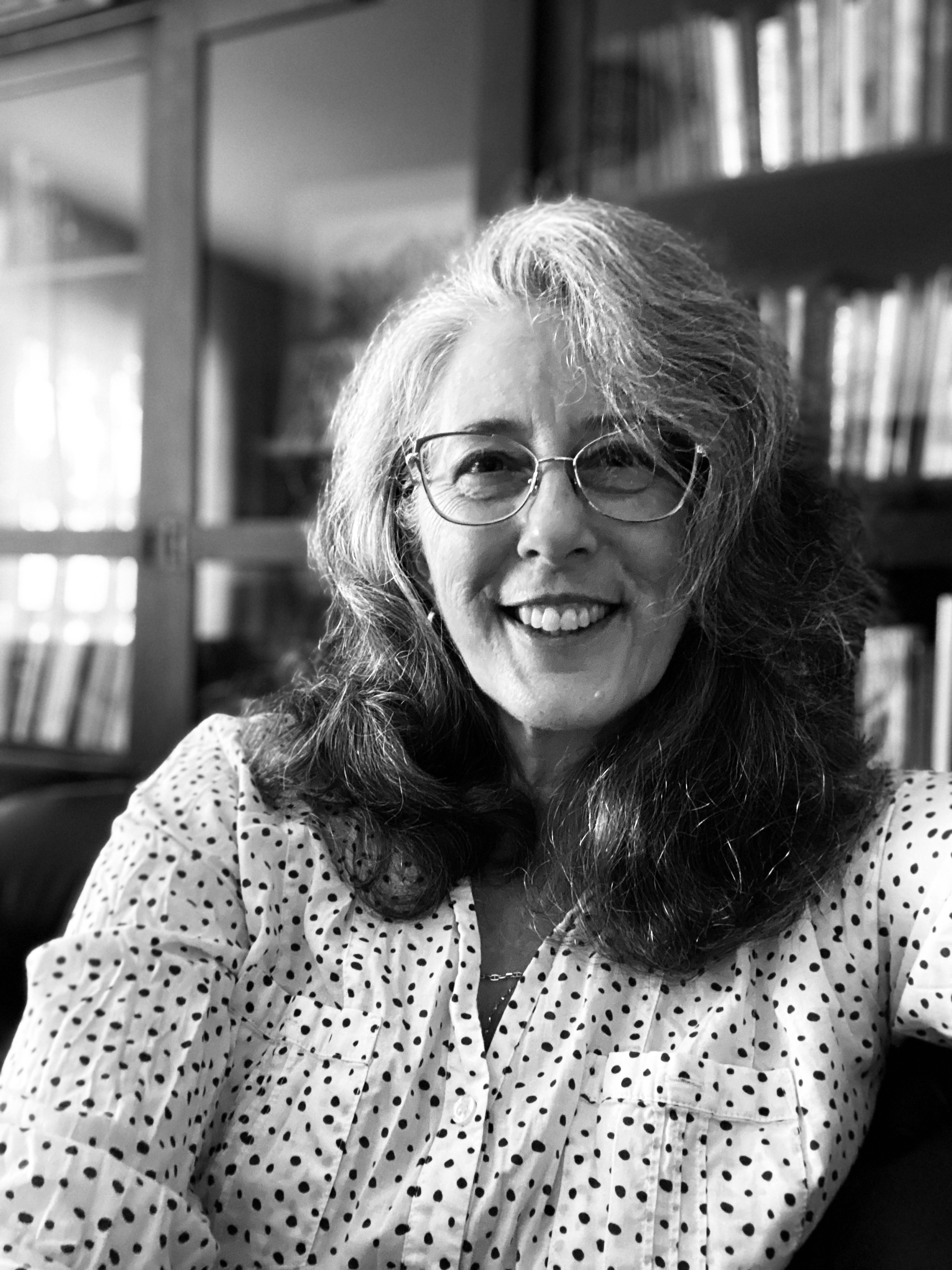
"Antiquarian booksellers occupy a unique and important place in the ecosystem of culture worldwide..."
Dawn, congratulations on your recent election as the President of The Australian and New Zealand Association of Antiquarian Booksellers! Some of us have met you before at ILAB congresses and fairs, but for those who have not met you, could you share your background, how you entered the world of rare books, and describe your business?
Thanks Angelika! My background is in the performing arts and academia, running retreats and workshops; writing, performing, and producing. For some time, I was the artistic director of the Australian chapter of the Magdalena Project, an international network of women in the performing arts. I have undertaken doctoral studies in feminist performance, and for a long time I have been interested in the multitude of ways in which people make meaning in their lives. I never planned to become a bookseller, but I have always been a reader and lover of books.
I entered the world of antiquarian bookselling when I married Hamish Alcorn. He had just bought Archives Fine Books, a large second-hand bookstore in the heart of Brisbane’s central business district. Since 1985 it has occupied the entire ground floor of a heritage listed building at 40 Charlotte Street. There are approximately 300,000 books on the shelves at any given time. Most of this stock is NOT searchable online but is organised by subject and alphabetised by author. Managing this incredible space and volume is the work of Hamish and our staff. This “temple of logos” exerted an irresistible gravitational force on my being, and it was inevitable that I was eventually sucked into its orbit.
A pivotal moment on my journey towards full-time antiquarian bookselling was attending CABS in 2015. I cannot speak highly enough of its focused programme, and the generous, experienced, and informative faculty. I had helped design our website and started to catalogue our stock, but I was swimming in a sea of questions. Attending CABS provided some important answers and opened my eyes to a world of possibility. For the first time in my life something genuinely interested me as much as theatre craft.
Looking for more opportunities to grow I applied for the ILAB mentoring programme and was paired with Sally Burdon of the Asia Bookroom (Canberra). I highly recommend this programme to any bookseller looking to develop understanding of and expertise in the world of rare and antiquarian books. If CABS was a pivotal experience, the ILAB mentorship affirmed and cultivated my new direction.
Archives Fine Books has survived by being a generalist bookstore catering to a wide clientele. Over time, however, our focus in the rare and collectible side of the business has tended towards poetry, literature, history, philosophy, and the arts. I have heard that poetry doesn’t sell, but I have personal passion for it, and the more poetry I catalogue, the more poetry collectors I meet. I find this deeply satisfying.
Given the demands and responsibilities of leading an association, what motivates and inspires you to dedicate your time and efforts to furthering the interests of antiquarian booksellers?
Antiquarian booksellers occupy a unique and important place in the ecosystem of culture worldwide. We are guardians of the human impulse to understand the world and our place in it and to write it down. I want to defend and celebrate this.
When I was first asked to serve on the ANZAAB Board I felt honoured that others perceived I might have a contribution to make. I also saw it as an opportunity to “give back” to an association that had already given me so much. From the start I have been supported to grow as a bookseller by the generosity of colleagues much more experienced than myself. I was supported by ANZAAB to attend CABS in 2015 and by both ANZAAB and ILAB to attend the Pasadena ILAB Congress in 2018. The deeply collegial nature of our trade is professionally rewarding and personally satisfying. I take delight in the ideas of my fellow board members and enjoy working with them. In 2025 we will be hosting the ILAB President’s Meeting in Melbourne, and we are just starting to plan the 50 th Anniversary of ANZAAB celebrations for 2027.
How have you observed the trade evolving over the past few years since you joined the world of rare books? Are there any notable trends or changes that you believe are shaping the market for rare books?
I entered the trade when many were sounding the death knell for the open bookstore and for books in general. Many specialty bookstores around us closed or moved their stock online. Readers moved from print books to e-books and then many returned to print. Collectors are increasingly younger, and I find I am responding to diverse collection enquiries. I don’t yet feel experienced enough to predict market trends. My curiosity about what print material younger collectors are gathering and my desire to encourage them has led to the establishment of the Archives Fine Book Collecting Prize for young collectors. Ask me again after we have run the prize for ten years and I might have more to say about that.
In your opinion, what role does education play in promoting awareness and appreciation for antiquarian books, and do you plan to enhance these aspects within the association?
I think education is very important. In an era where there are shrinking opportunities for people to apprentice themselves to a bookseller in an open bookstore, courses like CABS, YABS, and rare book schools are invaluable. Since attending CABS in 2015 I have been keen to see an educational initiative specifically for booksellers established in our region. We don’t have the volume of booksellers to support an annual week-long event, but ANZAAB has partnered with the 2024 Australia and New Zealand Rare Book School to provide a bursary for a bookseller to attend the course of their choice.
ILAB has also generously agreed to support a bookseller residing outside Australia to attend. The 2024 Rare Book School is being hosted by the State Library of Victoria in Melbourne and will run from February 4-9 (links below).
For some time ANZAAB has supported a member to attend an ILAB Congress. We see this as an educational and relationship building opportunity for members wishing to expand their horizons. Tim White of Books for Cooks (Melbourne) was the recipient of the bursary to attend the Oxford Congress in 2022, and we will shortly be announcing the successful applicant to the 2024 ILAB Congress in Amsterdam.
ILAB national association presidents will meet in July 2025 in Melbourne for the ILAB Presidents’ Meeting; we look forward to meeting you and your colleagues in Australia.
The ILAB Committee thanks you and your colleagues for your efforts in organizing such a meeting.
We are very much looking forward to welcoming you to Australia!
Dr. Dawn Albinger
President
Australian and New Zealand Association of Antiquarian Booksellers
FURTHER LINKS
https://www.anzrbs.org/2024-anzrbs-courses
https://www.anzrbs.org/bursaries-awards
Interview: Angelika Elstner
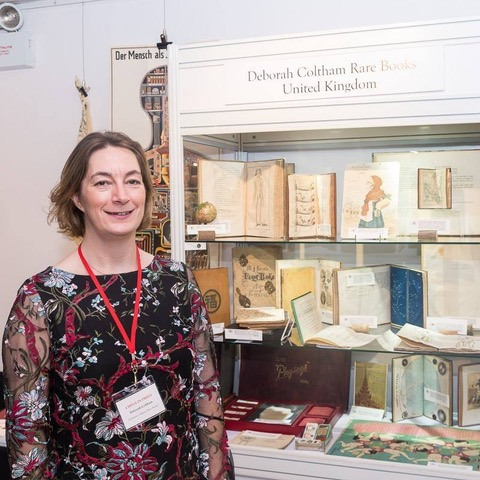
"As a trade association, we have a wealth of knowledge and experience amongst our members that is second to none"
Well-known bookseller and highly engaged supporter of the trade, Deborah Coltham will now steer the ship for the ABA for the coming two years.
After graduating from St Andrews University in 1994 with an MA in English Literature and Medieval History, Deborah joined Pickering & Chatto Ltd as an apprentice to the Head of the Science and Medicine Department, subsequently taking over the role in 1998. She established Deborah Coltham Rare Books in July 2006 and continues to specialise in a wide range of scientific and medical subjects, with books by or about women being a particular area of interest. She has worked closely with major libraries, institutions and individual collectors both in the UK and worldwide. Deborah has been part of the ABA National Council since 2017, for many years in the role of Membership Secretary and Vice-President. Besides her role as president of the ABA, Deborah organises and sits on the judging panel of the ABA National Book Collecting Prize, and is a faculty member of the annual York Annual Antiquarian Book Seminar.
In September 2022, Deborah played a key role in running our very successful 2nd ILAB Symposium at the Bodleian Library's Weston Library, moderating the event.
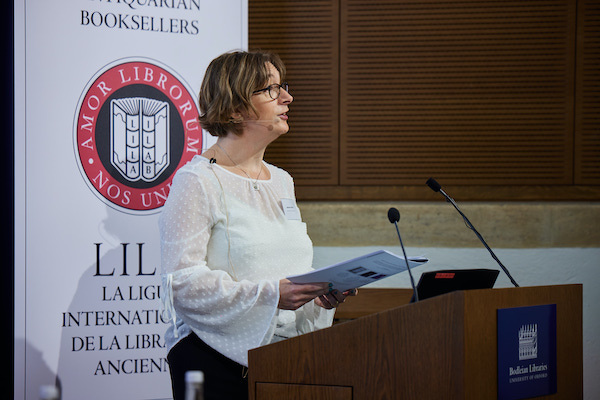
In a recent letter to members, Deborah looks back at the past few - stormy - years, when the book trade had to weather the unprecedented pandemic and many changes and challenges resulting from it.
It is with immense pride that I write to you in my new capacity as ABA President, having been elected to take over the role from Pom Harrington at the AGM last Wednesday. I am delighted that Bernard Shapiro was duly elected as Vice President, and that Daniel Crouch was happy to remain in post as Treasurer.
I am fortunate to be taking over the role in much calmer waters than in 2021. Pom has worked tirelessly on behalf of the ABA, not only during his Presidency, but for many years, and the trade as a whole has benefitted enormously from his forward thinking, dedication and dynamism. Thank you, Pom, for all that you have done, and all that you will no doubt continue to do on behalf of the rare book trade, and more formally in your role as the Chair of Firsts London. I have a hard act to follow!
Thanks too, must go to Daniel, whose fiscal prudence, and the triumphant ILAB Congress, means that we find ourselves in a more stable position than for some time. Especial thanks to Riley Grant: the number of personal tributes paid to her within the recent annual reports is a clear testament to how much we all rely on her, and the excellent job she does on our behalf as the first point of call for the Association.
May I also take the opportunity to thank Roger Treglown, who has stepped down from Council. First elected in 2000, he has taken on a number of roles, culminating in his Presidency from 2019-2021. The pandemic made for a challengingly two years and denied him an official hand-over to Pom, and so it was good that we could offer him our thanks and appreciation in person last Wednesday. Angus O’Neill is also stepping away from his advisory role on the Management Committee after several years. Recently elected as Vice President of ILAB, alongside Christopher Bailey as ILAB Treasurer, their roles ensure that the ABA will retain its prominent position internationally.
As a trade association, we have a wealth of knowledge and experience amongst our members that is second to none, and which forms the bedrock of the Association. We have a growing number of dealers setting out on their own, or gaining experience in established firms, and who bring with them new ideas and ways of connecting with customers. A number of those entering the Association are graduates of YABS, the brainchild of Anthony Smithson and Alice Laverty of Keel Row Books, with fellow director Jonathan Kearns. Now under the aegis of the ABA Educational Trust, I am sure that it will no doubt continue to prove to be an invaluable conduit for potential new members of the future.
Turning to book fairs, which are so vital and important to many of us, thanks to all who exhibited at Edinburgh. As always, it was pleasure to visit, albeit fleetingly, and it was good to see a steady stream of visitors, and the number of younger collectors in evidence which was encouraging to see. ...
So many members quietly work behind the scenes to help promote the Association, for which many thanks. It does not go unnoticed if perhaps not always trumpeted.
We have many wise heads and smart business brains sitting on Council, who represent the many facets of the book trade from several parts of the country, including sole traders working from home, smaller independent shop owners, long-established family firms, and larger, globally recognised companies. All care passionately about our trade and are extremely active and motivated. I may be the visible spokesperson for the next two years, but it is very much a collective effort, and we are all looking forward to the months ahead.
Deborah Coltham
ABA President
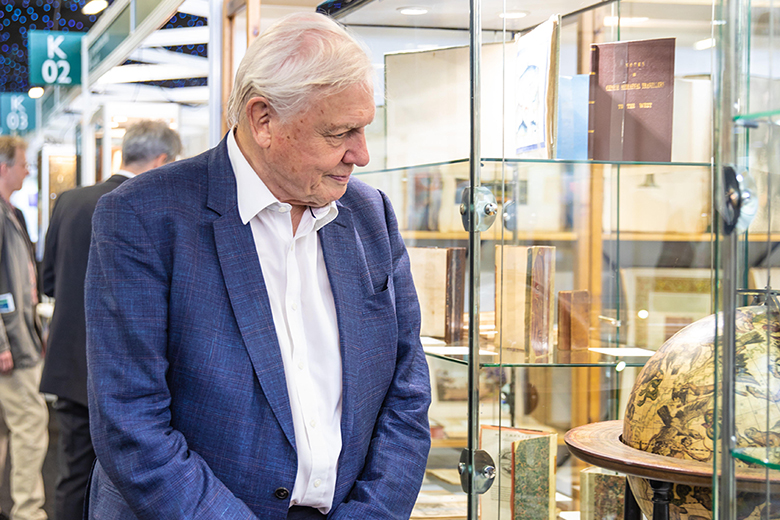
"Bibliomaniacs in Battersea" - The Times Literary Supplement writes of the London Rare Book Fair
When the fair first started in 1957, Attenborough was abroad filming along the Great Barrier Reef; this year he is cutting the tape, officially opening the event’s sixty-first outing. He is, as he put it, “unabashedly a collector”; he bought his first rare book when he was fifteen. It was On the Origin of Species, naturally – not the first edition but the sixth, in which Darwin introduced the word “evolution”.
To a collector, the specifics of different editions matter deeply, far more than they do to the general reader. They are an important element in the complex of features that determine how well a book fits one’s collection, how badly one wants it. Walter Benjamin observed that “the period, the region, the craftsmanship, the former ownership – for a true collector the whole background of an item adds up to a magic encyclopedia”. As Attenborough notes wryly, one doesn’t necessarily collect books in order to read them.
This year the fair takes place in an exhibition centre in the middle of Battersea Park. It is vast. A hundred and eighty bookdealers have set up stalls, transporting their wares from Vienna, Vancouver, Sydney, San Francisco, among other places. These include your straightforward high-end treasures: an exquisite hand-coloured first edition of Vesalius, yours for £850,000; a Kelmscott Chaucer, £60,000; various early Shakespeare folios. There are also association copies: Alan Rickman’s Harry Potterbooks; one of the Thomas the Tank Engine stories signed by Ringo Starr. A fair few of the dealers specialize in modern first editions: Woolf’s Kew Gardens, set, printed and stitched by the Woolfs themselves; Joyce’s Ulysses in its Greek blue covers. It is like walking around the gallery of a major library, with the added thrill of knowing that, if you just sold one your vital organs, you might take home one of the exhibits.
>> This article was first published in the Times Literary Supplement and is reposted here with permission of the editor. View original article here.
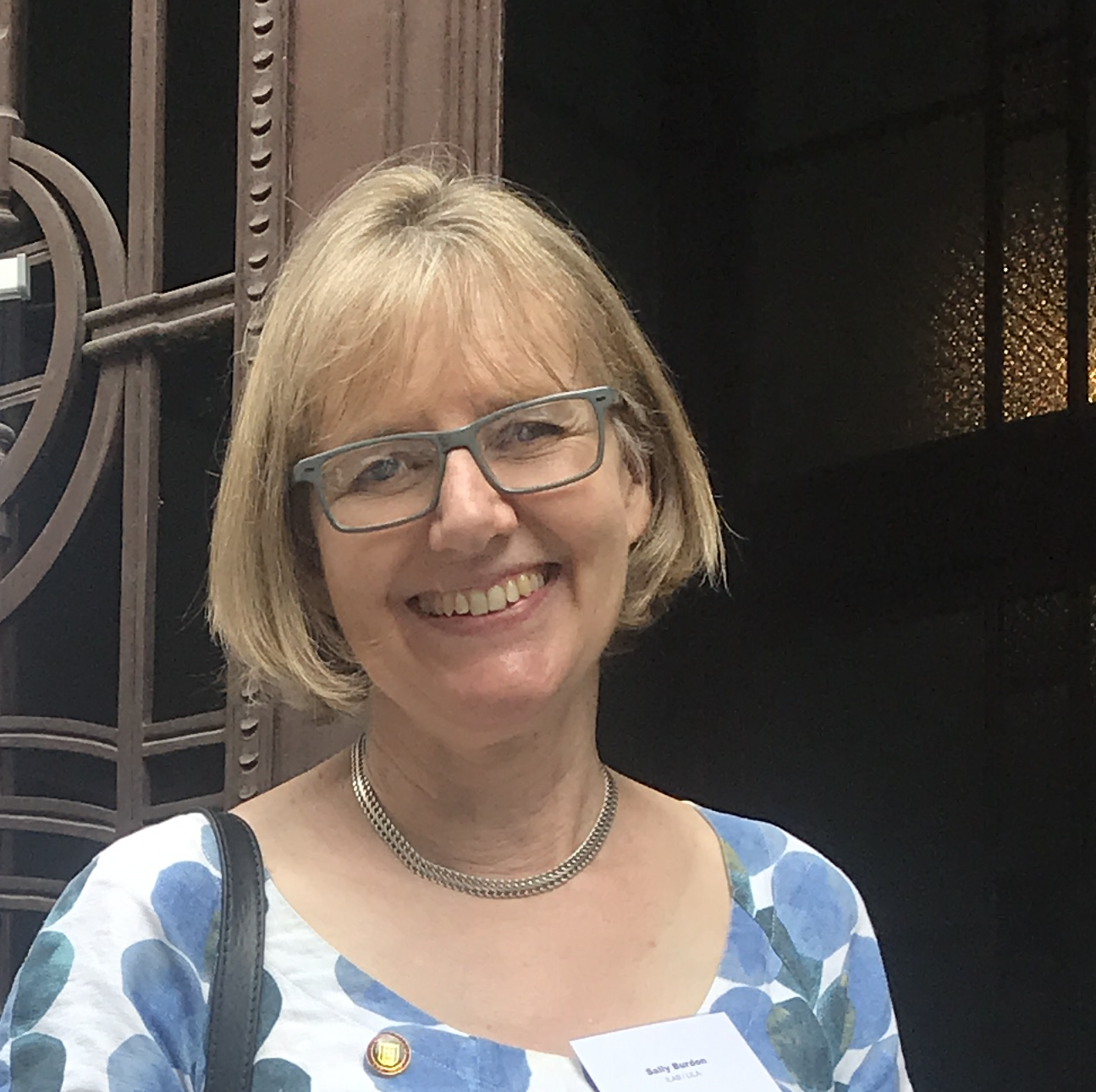
"Change is always around us, and we need to be ready as a trade to face it together."
For years Sheila Markham has been interviewing booksellers from all over the world. These interviews, well known and much loved in the trade, are some of the most interesting accounts of our trade, portraying so many fascinating personalities and backgrounds.
A few days before the opening of the Melbourne Rare Book Fair, we asked Sheila if we could share this latest interview with Sally Burdon and, of course, received a warm and positive response.
Sally Burdon shares insights from a lifelong career in the rare book trade, as well as her work with ANZAAB, the Australian and New Zealand Association of Antiquarian Booksellers, and ILAB. Fulfilling many roles, Sally Burdon has shaped ILAB over the past few years, initiating and leading many projects that will serve our community well into the future.
More bookseller interviews by Sheila Markham can be found on her website HERE
To visit the Melbourne Rare Book Fair this week, check out the fair website HERE







